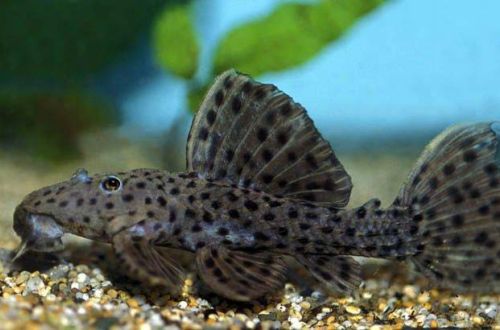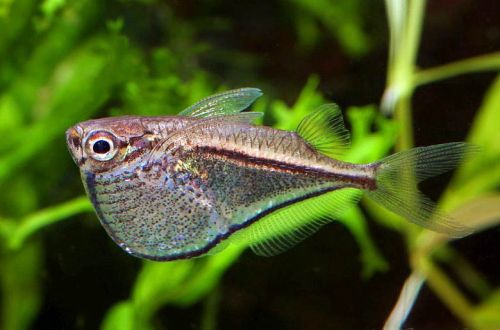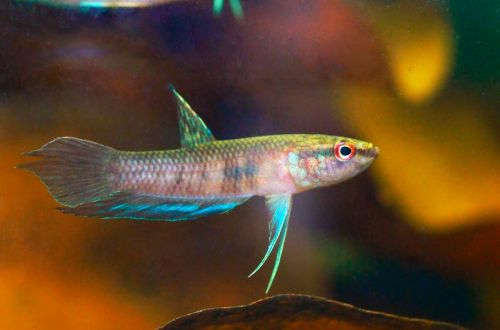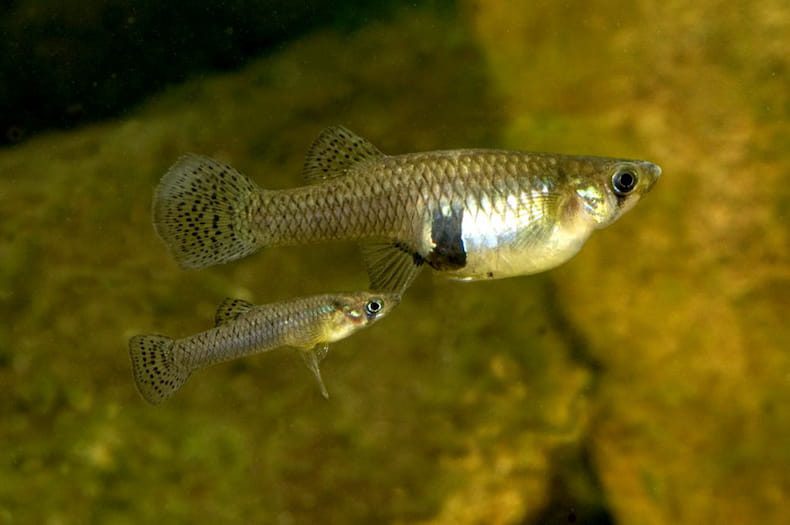
Gambusia
Gambusia or Mosquito fish, scientific name Gambusia holbrooki, belongs to the Poeciliidae family. Active mobile roar, distinguished by endurance, successfully adapts to various water conditions. An excellent candidate for the role of the first fish of a novice aquarist. However, you should be careful with the neighbors, she is quite cocky.

Habitat
Occurs from small swampy water bodies of North America, is widespread everywhere. It is artificially brought into river systems, where it did not previously live, in order to combat blood-sucking insects, since Gambusia are happy to eat aquatic mosquito larvae.
Requirements and conditions:
- The volume of the aquarium – from 40 liters.
- Temperature – 15-24°C
- Value pH — 6.0–8.0
- Water hardness – any (up to 30 dGH)
- Substrate type – any
- Lighting – moderate
- Brackish water – no
- Water movement is weak
- Size – 3-6 cm.
- Food – any food
Description
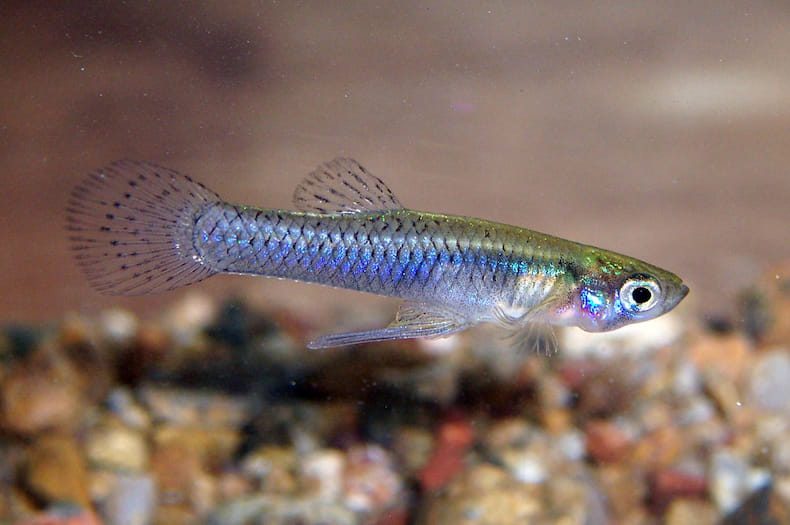
Small slender fish. Sexual differences are significant – the male is miniature and half the size of the female, which is larger, with a rounded abdomen. Coloration yellow-brown to dark. The tail and dorsal fin are adorned with black dots. In females, a dark mark is visible on the abdomen above the anal fin. Males have a thin modified anal fin, with the help of which fertilization occurs.
Food
Accepts all types of feed: dry (flakes, granules, etc.), frozen and live foods (bloodworm, daphnia, mosquito larvae, etc.).
Maintenance and care
An extremely hardy species, successfully adapting to a wide range of pH and GH values. Gambusia is able to live in almost any water, so there are no problems with its maintenance. In a spacious aquarium with numerous root plants, you can do without equipment at all, with the exception of lighting. Plants will take over the function of maintaining ecological balance. For prevention purposes, part of the water should be renewed weekly (10–20% of the volume) and the substrate should be cleaned with a siphon.
Social behavior
Quarrelsome, prone to biting off the fins of other fish. The optimal solution is a separate aquarium for a single species. It is desirable to keep in a pack of at least 5-6 individuals. One by one they lose their tone, become lethargic and quickly die.
Breeding / breeding
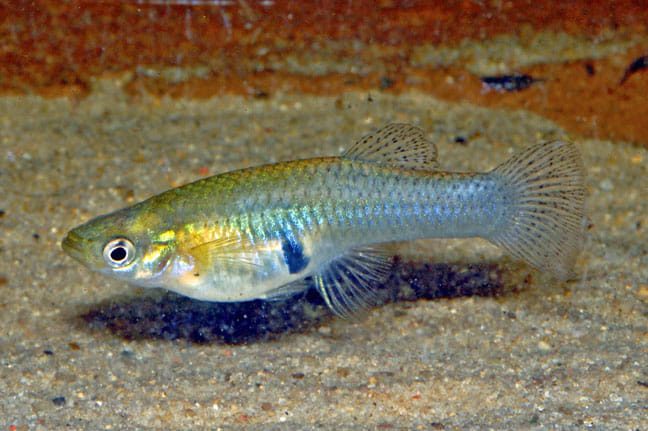
Pretty prolific fish. Spawning does not require the creation of any special conditions. Offspring appear several times a year. The entire incubation period, fertilized eggs are in the body of the fish, and already formed fry are born. This feature has developed evolutionarily as an effective protection of offspring. Parents do not show concern for the fry, but on the contrary attack them if they did not have time to hide in the thickets. Juveniles are recommended to be deposited in a separate tank. Feed with microfood, brine shrimp nauplii, etc.
Fish diseases
Diseases are rare, caused mainly by the aquarist himself: poor conditions and poor water quality, contact with sick fish, injuries. Read more about symptoms and treatments in the Aquarium Fish Diseases section.



